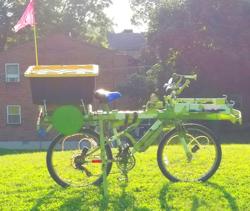On 2/12/2018 at 4:41 AM, Awoken said:Qualia and why it's a bad addition to this discussion. If one uses the word qualia with the idea that qualia is actually some type of mystical substance unique in and of itself then I'd agree with your statement. However; if qualia is a just word place-holder for subjective experience then the logic is bananas. This is why I hate the word, because people enjoy trashing the idea of qualia and I think it's just a philosophical addition to the discussion that confuses the ideal, that being subjective experience. Would you make the same assertion?
'For this reason, it's unfortunately really hard to argue that subjective experience,... actually exists at all.'
Stupid qualia, and I don't like that it's often used in combination with subjective experience. I think a distinction needs to be made. Qualia is a poor attempt at quantifying subjective experiences. Subjective experiences are emergent phenomena of the brain that we yet have little insight into.
I have mixed feelings. On one hand, I agree that using the word "qualia" brings an implication of something more than simply "subjective experience," and I think that this adds yet another not-necessary-useful level of specificity to a concept that's already difficult to pin down.
On the other hand, I still think that's pretty tough to talk about "subjective experience" on its own as well -- that is, in a way that actually distinguishes "subjective experience" as a concept from the physical and functional processes of the brain.
There's a popular notion of a "philosophical zombie" that's defined as something that either recreates the physical processes of the brain, or emulates the functional processes of the brain, but without subjective experience. This seems like a good starting point for actually describing subjective experience, but I also think it's a potential trap: even though it's (at least sort of) possible to imagine such a zombie, it's not necessarily the case that such an entity could actually exist. For instance, it's totally possible to "imagine" some statement in formal logic, only to realize that the statement contains a contradiction.
Basically, I think it's difficult to distinguish "qualia" from "subjective experience," but it's also surprisingly hard to distinguish "subjective experience" from "no experience at all," so I don't think dropping the notion of "qualia" really gets us much further.






